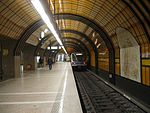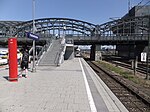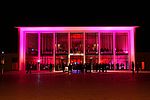Oktoberfest bombing

The Oktoberfest bombing (German: Oktoberfest-Attentat) was a far-right terrorist attack. On 26 September 1980, 13 people were killed (including the perpetrator) and more than 200 injured by the explosion of an improvised explosive device (IED) at the main entrance of the Oktoberfest festival in Munich, West Germany. The bombing was attributed to the right-wing extremist and geology student Gundolf Köhler, who was instantly killed in the attack as the bomb exploded prematurely. Prior to the bombing, Köhler had been involved with the banned neo-Nazi militia Wehrsportgruppe Hoffmann, and doubts remain as to whether he acted alone. A federal investigation concluded in 2020 that the participation of accomplices or backers in the bombing could not be proven beyond reasonable doubt, although it still could not be precluded.Excluding the perpetrators, the attack is the deadliest in Germany since World War II along with the 1972 Munich massacre, and the deadliest perpetrated by a right-wing activist in the country since 1945.
Excerpt from the Wikipedia article Oktoberfest bombing (License: CC BY-SA 3.0, Authors, Images).Oktoberfest bombing
Hans-Fischer-Straße, Munich St. Paul (Ludwigsvorstadt-Isarvorstadt)
Geographical coordinates (GPS) Address Website Nearby Places Show on map
Geographical coordinates (GPS)
| Latitude | Longitude |
|---|---|
| N 48.13592 ° | E 11.549736 ° |
Address
Theresienwiese (Oktoberfest)
Hans-Fischer-Straße
80336 Munich, St. Paul (Ludwigsvorstadt-Isarvorstadt)
Bavaria, Germany
Open on Google Maps










